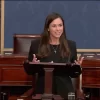By Lee Hedgepeth
Alabama Political Reporter
Those involved in Florida’s “school choice,” Accountability Act-style program are sure to be celebrating this week – including John Kirtley, the venture capitalist who partnered with former Governor Bob Riley to form Alabama’s most prominent SGO, or scholarship granting organization.
SGOs, in both Florida and Alabama, provide scholarships to fund private school tuition for public school students, particularly those whose families are low income, and those zoned for what are labeled “failing” schools.
The beginning of this month marked the end of the Florida legislative session, and with it, the surprise passage of an expansion of the Sunshine State’s private school voucher program. While it is much larger than Alabama’s system, Florida’s SGO scholarship program works in a very similar manner.
The expansion that passed the Florida Legislature and is now headed to the desk of GOP Governor Rick Scott removes various barriers to entry into the program, including expanding scholarship programs to include those in higher-income homes.
The bill, which was literally stuck into the text of another as a last minute procedural move, passed along mostly party lines, with Republicans in support and Democrats in opposition.
Florida Senator Joe Negron, R-Stuart, said of the controversy surrounding the bill, “Let parents decide. Parents are the first and best educators.”
Ironically, the Florida Parent Teachers’ Association, has taken a stance against the law, as have various teachers’ and educational organizations. The groups have expressed concerns that continued expansion of voucher programs for private schools will undermine public school education across the state, specifically citing that some of the private schools accepting the scholarships receive more money from the state-sponsored program than from private funding, resulting in a quasi-private school situation. Others say that 80 percent of the schools receiving the funds could become an issue.
In 2006, the Florida Supreme Court struck down one version of a school voucher program, saying it undermined the public school system, which is protected by the state constitution, though a workaround was developed, leading to today’s program.
The effort in Florida to pass an expansion gained regional attention when proponents of the bill began spewing different numbers in reference to the number of students “waiting” on scholarships under the program. Though claims ranged from ten thousand kids to a hundred thousand kids including claims form Step up for Students executives, the Florida Department of Education confirmed that no such list exists in their possession, and a spokesman for Step up for Students told CBS Miami that no waiting list was actually kept for this year. Below is a list of the number of students on a waiting list different proponents of the expansion have claimed, as compiled by a blogger at Huffington Post, sorted the date each claim was made:
- Feb 14 – Step Up for Students President- 50K -“to completely eliminate those on the wait list..need to fund 50K more students.”
- Feb 20 – Step Up For Students, VP, Jon East- 34K – “we have 34K who started the application process” waiting for funding.
- Feb 27 – House Speaker Weatherford -30K “30K on wait list but only 6K students will benefit in near term if this bill passes.”
- Mar 4 – House Speaker Weatherford’s opening speech – “tens of thousands longing to send their children” to voucher schools. Mar 4 – Senate President Gaetz’ opening speech- 10K – “10K students waiting in line for vouchers.”
- Mar 5 – Rep. Manny Diaz- 50K -Diaz must not have heard opening speeches because he told Miami Herald – “50K students are waiting”
- Mar 6 – Jon East, VP, Step Up For Students – 25K – lowered his figure from two weeks priot to now “25K students waiting”
- Mar 7 – Rep. Manny Diaz, Jr. -25K “25K were not able to receive vouchers this year because we ran out of money.”
- Mar 28 – Rep. Erik Fresen – 100K at House Education Appropriations Hearing- “We have 100K students on the wait list for vouchers.”
Lawmakers in Alabama have tried to expand the Accountability Act in ways which parallel that of Florida.
During this year’s legislative session, which ended last month, HB558, sponsored by Representative Chad Fincher, would have made several significant changes to the law. The tax credit cap for donating to so-called SGOs, which is currently set at $7,500 per individual taxpayer in Alabama, would be removed under the bill’s revisions to the AAA, but it would not affect the total cap of twenty five million dollars set aside for use in matching creditable donations to so-called Scholarship Granting Organizations, whose purported aim is providing scholarships to students to attend non-“failing” institutions. The Alabama Department of Education determines the list of “failing” schools annually.
In addition to removing the individual cap on tax credits, Fincher’s proposed legislation would have expanded the definition of the eligible “individual taxpayer” to include S-corporations and LLCs, in effect allowing these entities an unlimited shot at the $25 million in tax credits in a manner reminiscent of Citizens United. Many viewed Representative Fincher’s bill as a move to incrementally push Alabama towards more drastic changes like eliminating or increasing the overall cap for donations that can be tax credited.
A representative for the Riley-Kirtley SGO testified at the public hearing for the bill during the session, saying that the committee should “consider whatever it takes, whatever that means” to ensure the financial stability of scholarship granting organizations throughout the Yellowhammer State. Notably, John Kirtley and his Florida SGO operate under a system where only 3 percent of total SGO donations can be taken by the organization as an “administrative” fees, which has lead to tens of millions to Kitley’s Florida SGO operation, as opposed to Alabama, with a cap of 5 percent, under which the Riley-Kirtley SGO now operates.





















































